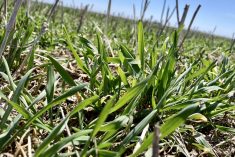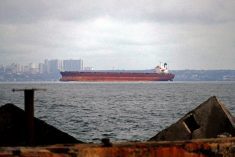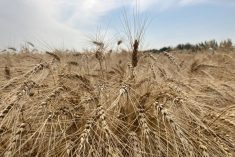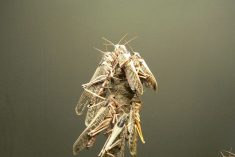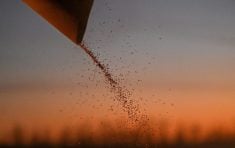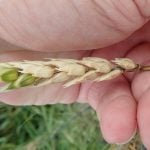Kyiv | Reuters — Russia has destroyed almost 300,000 metric tonnes of grain since July in attacks on Ukraine’s port facilities and on ships, the Ukrainian government said on Friday, underscoring the war’s threat to global food security.
In summer, Moscow quit a U.N.-brokered deal that had allowed exports of Ukrainian grain through the Black Sea safely. Since then, Russian forces have hit six civilian ships and 150 port and grain facilities during 17 attacks, destroying crops headed for export, Deputy Prime Minister Oleksandr Kubrakov said in a statement.
Read Also

U.S. livestock: Feeder cattle hit contract highs on tight supply
Chicago | Reuters – All Chicago Mercantile Exchange feeder cattle futures and most live cattle futures hit contract highs on…
“This is Russia’s attempt to deepen the food crisis in the countries which depend on Ukrainian products,” Kubrakov said.
The damage on Ukrainian ports reduced the country’s grain export potential by 40 per cent, he said. Russia has attacked port facilities on both the Black Sea and Danube River.
Ukraine is one of the world’s largest wheat and corn exporters.
The Russian defence ministry could not be immediately reached for comment.
Kubrakov said 21 grain-loaded vessels have already used a new “humanitarian” grain corridor in the Black Sea that Kyiv established in August.
He said that under the previous U.N. Black Sea Grain Initiative, Ukraine had exported 33 million tonnes of grain, with 60 per cent of that shipped to African and Asian countries.
— Reporting for Reuters by Olena Harmash.




